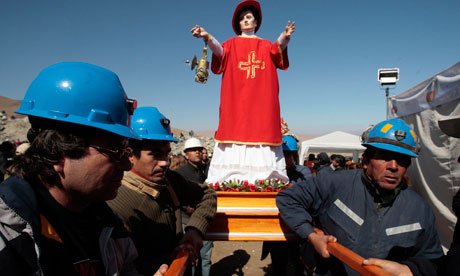
Watching Inception (2010) is like being bludgeoned to death with an ice mallet. In sadly predictable fashion, Christopher Nolan takes the film from an interesting beginning to a painfully convoluted and unsatisfying finish. The result is a film that thinks it's a lot more clever and complex than it really is.
Dom Cobb (Leonardo DiCaprio) is an expert at stealing ideas from people's minds via their dreams. Will doing such a job on industrialist Saito (Ken Watanabe), Cobb's cover is blown, and he and sidekick Arthur (Joseph Gordon-Levitt) are shanghaied into doing a different job for Saito: to plant an idea in the head of rival businessman Robert Fischer (Cillian Murphy) and bring down his business empire. Cobb and Arthur assemble a new team, including weapons guy Eames (Tom Hardy), a chemist/sleep expert (Dillip Rao) and an architectural student (Ellen Page) to pull it off. Things quickly become complicated when Cobb's own memories of his wife (Marion Cotillard) begin interfering with the dreamworld, and when heavily-armed "security" forces show up to wipe our protagonists out.
It must be said that Inception starts off very well. The first 80 minutes or so are engrossing and promise a superb movie. There's lots of talk and exposition - it wouldn't be a Nolan film if there weren't - but the talk is interesting, and we have a nice cross-section of characters assembled for the job. The concept of the movie is fascinating, and the early scenes of dream-exploring create high hopes for the main story. It's set up as a cerebral heist film with a sci-fi twist, and by God it looks like it will be fun to go along for the ride.
Once the actual job gets under way, however, Inception begins to unravel. By the time we've penetrated a third level of reality, the movie has devoured its own tail, only to keep going until it bursts out its own stomach. The pace becanes schizophrenic, trying to balance long dialogue scenes with action and the layers of reality are awkwardly juggled. The dreams themselves, aside from a few nice bits early on, are flat and bereft of wonder: compared to Shutter Island's bizarre phantasmagorias, Inception's aren't remotely convincing and undermine the facile musings about "the nature of reality." Nolan falls back on action movie cliches to pad out the run time, with a shoot-'em-up finale that wouldn't be out of place in a Die Hard or Bond flick. Nolan spends half the film building up our expectations only to steer it off a cliff.
Perhaps most irritating of all is the screenplay. Nolan's hamfisted homilies in The Dark Knight got a bit grating, but didn't seriously detract from the film. Unfortunately, Inception is largely sunk by its script, a shining example of obvious storytelling. Everything is spelled out in the most excrutiating detail: backstory, key plot points, everything that's going on. The twist involving Cobb could have been interesting were it not handled with awkward, clunky and long montages and monologues. It's not that the film is confusing or hard to follow; far from it, with everything hammered into the audience's skull, even the densest viewer can fully grasp what's going on. A complete lack of humor or ambiguity and one-note characters don't help either. Nolan either needs to acquaint himself with the concept of subtlety, or get someone else to write his movies.
Nolan's direction is mostly good. The action scenes are a mixed bag: some are creative and interesting - Arthur's zero-gravity showdown with dream-world thugs - others more banal and generic, though at least we're spared obnoxious shaky cam and quick-editing. The pace is a bit uneven, with the movie awkwardly balancing action and exposition within the same scenes, but flows reasonably well. A major weak point is Hans Zimmer's strikingly banal score: the talented composer who gave us the scores for The Lion King, Crimson Tide and Pirates of the Caribbean has been reduced to repetitive, mind-numbing mixtures of insistent strings and loud electronic noise.
Nolan does his ensemble cast few favors, though a few manage to shine. Leonardo DiCaprio has the only meaty role and he nails it, even if his Cobb comes off as a watered-down variation on his Teddy Marcus from Shutter Island. Joseph Gordon-Levitt (500 Days of Summer) and Tom Hardy (Black Hawk Down) are good, and Ellen Paige (Juno) divests herself of her usual obnoxious persona. Marion Cotillard (Public Enemies) mostly has to be sad and pretty, both of which she nails. Michael Caine, Cillian Murphy and Ken Watanabe mostly bring baggage from previous Nolan films. Pete Postlethwaite (In the Name of the Father) and Tom Berenger (Rough Riders) are squandered in the tiniest of bit parts.
Inception is ultimately a big, fat, mindfucking disappointment. That it starts off so well makes its ultimate mediocrity that much more frustrating.



















